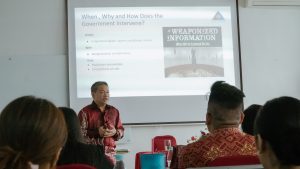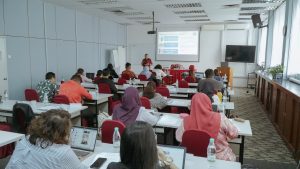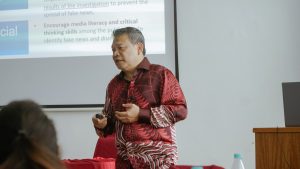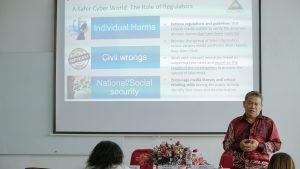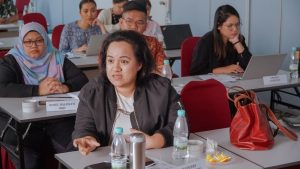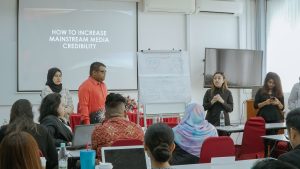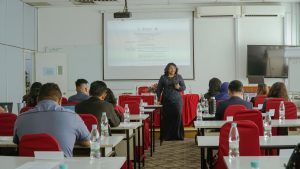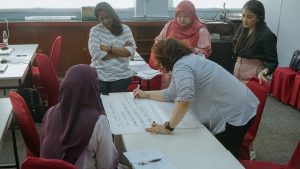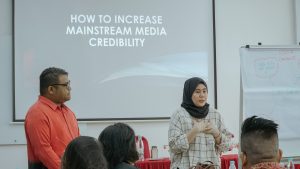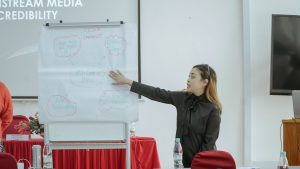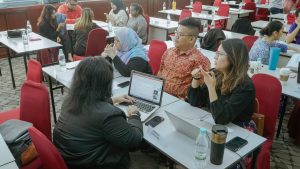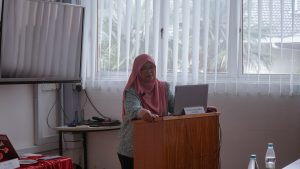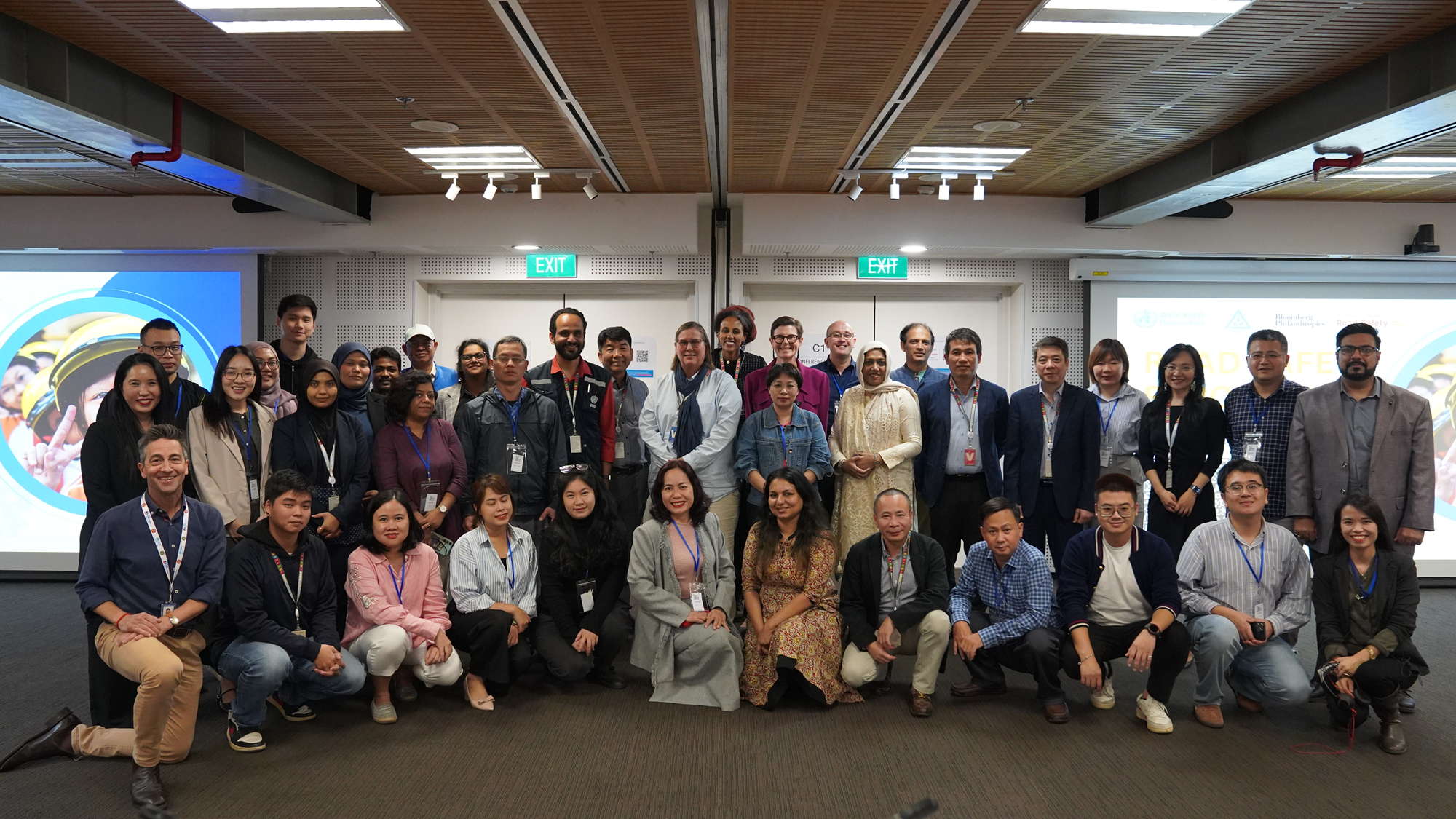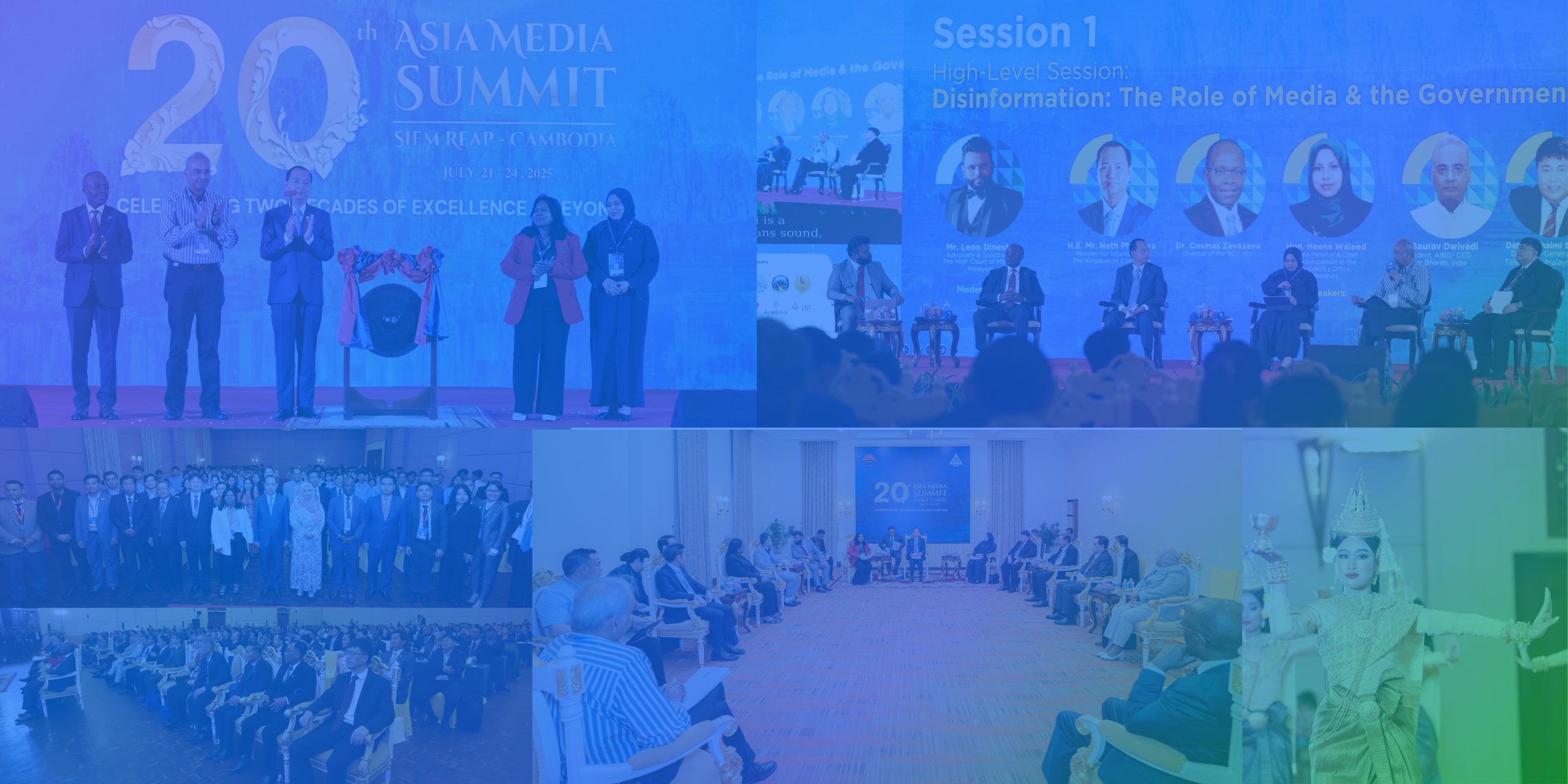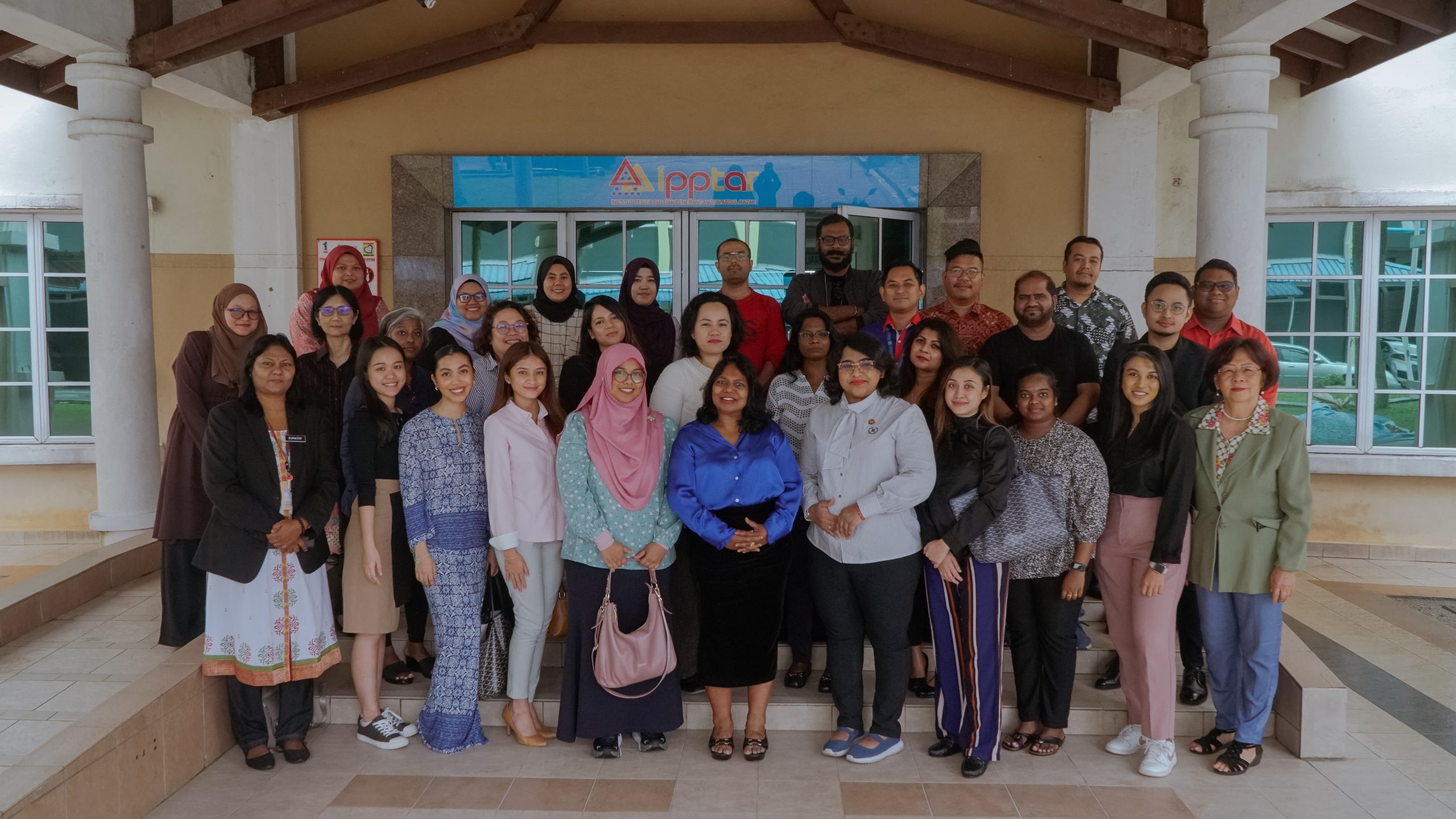
The Thin Line Between “Fake” and “Fact”: Navigating Disinformation in Southeast Asia
By Monica Phang – AIBD Programme Manager
Edited By Dinnierose Raiko – AIBD Programme Manager
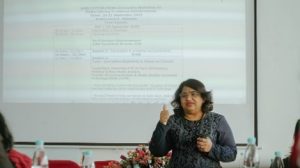
Political & Media Analyst, Associate Prof Dr Sara Chinnasamy in session
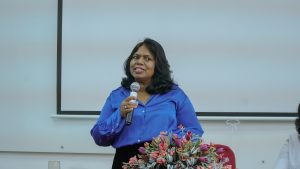
AIBD Secretariat Director Ms. Philomena Ganapragasam addressing participants
With the presence of the internet, Southeast Asian countries have witnessed a duality – while it serves as a platform for democratic discourse, it has also emerged as a breeding ground for fake news, misinformation, and political hoaxes. This critical issue took center stage at the two-day In-Country workshop on Media Literacy to combat Disinformation from the 20th – 21st September 2023, in Kuala Lumpur, under the guidance of Political & Media Analyst, Associate Prof Dr Sara Chinnasamy, jointly organized by AIBD, IPPTAR and the Malaysian Communications & Multimedia Commission.
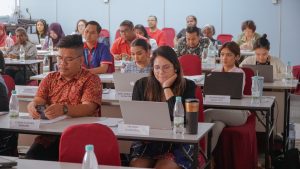
The workshop drew about 30 participants, comprising representatives from the Strategic Communications and Corporate Division of the Ministry of Communication & Digital (KKD), Radio Television Malaysia, Bernama, Sun Daily, New Straits Times, MCMC consultant – Ruder Finn Malaysia, as well as distinguished academicians from UM, UiTM, and BAC.
Ms. Sakina Mohamed, Editor and Head of Digital Media at Bernama, emphasized five fundamental media literacy skills that are imperative for media practitioners to possess in their pursuit to thwart disinformation: Analysis, Evaluation, Creation, Participation, and Access.
Ms. Sakina Mohamed, Editor and Head of Digital Media, Bernama
Moreover, there are eight foundational concepts of media literacy that demand the attention of media professionals, empowering them to responsibly engage with digital media.
1. Each medium has a unique aesthetic form;
2. Form and content are closely related in the media;
3. Media has social and political implications;
4. Media contains ideological and value messages;
5. All media are construction;
6. The media construct reality;
7. Audience negotiate meaning in media;
Addressing the heart of the matter, Datuk Zulkarnain Mohd Yasin, Chief Regulatory Officer, explored the concept of weaponized information. He emphasized that reports or complaints against any published content should be scrutinized for potential “weaponized information”, which often involves deliberate dissemination of falsehoods, commonly known as disinformation.
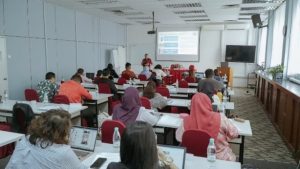
Participants in session with MCMC Chief Regulatory Officer, Datuk Zulkarnain Mohd Yasin
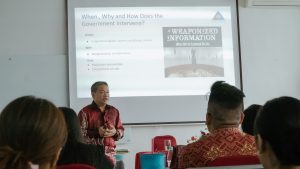
Malaysian Comunications & Multimedia Commission Chief Regulatory Officer, Datuk Zulkarnain Mohd Yasin discusses weaponized information and the importance of being diligent with information
Datuk Zulkarnain highlighted the grave dangers associated with Fake News and
Disinformation, outlining scenarios wherein it can wreak havoc:
-
Dissemination across online and social media platforms, potentially causing panic, anxiety, and fear among the public.
-
Infliction of reputational damage on individuals, organizations, or even entire nations.
-
Fostering divisions within communities and nations, potentially leading to conflict and unrest.
-
Erosion of public trust in vital institutions like the media, government, and healthcare.
-
Fostering of hazardous and prejudicial practices, including the propagation of conspiracy theories and hate speech.
The workshop stands as a crucial step towards equipping media professionals with the skills and knowledge necessary to discern fact from fiction in an increasingly digitalized world. It serves as a clarion call to fortify our collective defenses against the pervasive threat of disinformation.
Related Content: Beware of Weaponized Information
